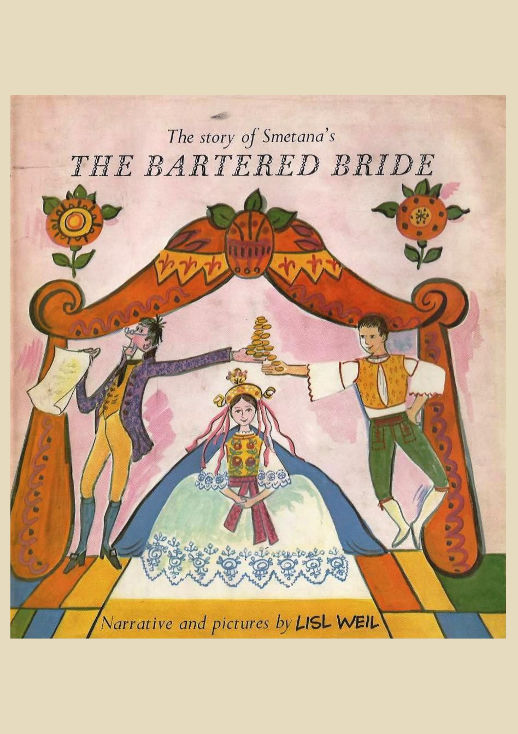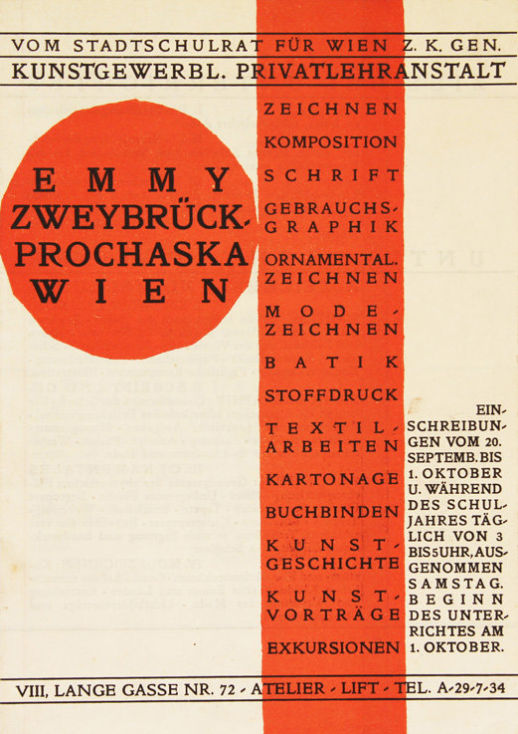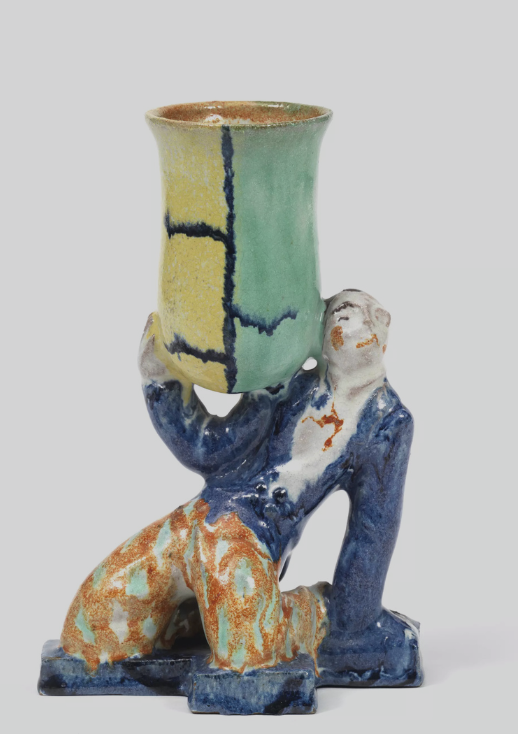



Creativity from Vienna to the World:
Transatlantic Exchanges in Pedagogy and Design
Project destcription
How did transatlantic exchanges between Central Europe and the United States impact pedagogy and design?
Connecting aspects of design and women’s history, pedagogy, migration history and cultural transfer, this event series seeks to establish a critical overview of the achievements of migrant women designers who moved to the United States from Central Europe in the first half of the 20 th century. It addresses how ideas related to design and pedagogy that were consolidated in Central Europe were developed and disseminated by designers who began second careers in the United States after emigration. By shedding further light on the transatlantic connections that represented an important aspect in the careers of many of these designers, the event series shows that their careers continued to develop in emigration and highlights that the contributions of female migrant artists played a significant role in advancing design and pedagogy in the United States. The project invites proposals for papers analysing examples and case studies about transatlantic exchanges in pedagogy and design with a focus on Central Europe and the United States.Specific questions that might be addressed include, for example:
- How and why were female designers funnelled into particular trajectories (i.e. specializations in teaching children or particular fields of design)?
- Which opportunities were open to women designers upon arrival in the United States?
- How was their education in Central Europe formative for their second careers?
- Which impact did the women have, through teaching and practice, on the history of American design?
The project is sponsored by the Botstiber Institute for Austrian-American Studies (BIAAS) and comprises of an online event series, a blog, interviews and podcast, as well as an online exhibition. Selected paper from the event series will be published in a special issue of the Journal of Austrian-American History.
Event series – programme
A serial online symposium about transatlantic changes in Design and pedagogy between Central Europe to the United States Lecture series.
2 March – 12 April
All events will take place online on Zoom at 6pm CET (Vienna) / noon EST (New York)
Thursday, 2 March: KEYNOTE
Ceramicist Vally Wieselthier and Orientalism in Vienna in the Interwar Period – Elana Shapira (University of the Applied Arts, Vienna)
Thursday, 9 MArch: Cultural transfers in art and pedagogy
From Secessionist Vienna to Postwar America: Emmy Zweybrück, Franz Cizek and the Cult of Child Creativity – Megan Brandow-Faller (CUNY, New York)
Felice Rix-Ueno at the MOMA: American documentation of the cultural transfer between Vienna and Japan – Anne-Katrin Rossberg (MAK – Museum of Applied Arts, Vienna)
Thursday, 16 MArch: The čižek school in the united states
Wiener Werkstätte and Czech Cubism – Form Art of the k. k. Monarchy in the international Kontext – Alexander Klee (Belvedere Museum, Vienna)
Franz Čižek (1865-1946): Pioneer of Art Education – Wanda Bubriski (Independent Scholar)
Viennese Children’s Creativity Across the Atlantic. Popularization of art from the Franz Čižek class by female charity workers – Julia Harasimowicz (University of Warsaw)
Thursday, 23 MArch: Careers and networks after migration
Lisl Weil: Drawing up a New Life – Julia Secklehner (Masaryk University, Brno)
Friederike Beer-Monti and the Artists’ Gallery – Janis Staggs (Neue Galerie, New York)
Thursday, 30 MArch: designing new Careers
Liane Zimbler: From Viennese Sentimental Interior to California Mid-Century Modernism – Ladislav Jackson (Brno University of Technology, Brno)
Eva Zeisel, 1906 – 2011 at the Museum of Modern Art in New York City 1946 – Joyce Corbett (Independent Scholar, San Diego)
Thursday, 6 April: kEYNOTE
Anna Lesznai and Mariska Undi: A Comparison of Transatlantic Encounters – Rebecca Houze (Northern Illinois University, Chicago)
Wednesday, 12 April: Roundtable Discussion
“Women Designers and Pedagogues at the Centre of Transatlantic Approaches to Design History”
with keynotes, curators and filmmaker Elena Goatelli
Blog
Interviews
Veronika Halamová: The work and Fortunes of Robert Haas. An interview with Frauke Kreutler, the curator of Wien Museum
Julia Harasimowicz: The Transnational Encyclopedia. Interview with Holly Phillips, a collection manager and acquisitions specialists at the Thomas J. Watson Library
Valéria Kršiaková:Women designers and artists in Antgewandte. An interview with Stefanie Kitzberger and Eva-Marie Klimpel, Collection and Archive, University of